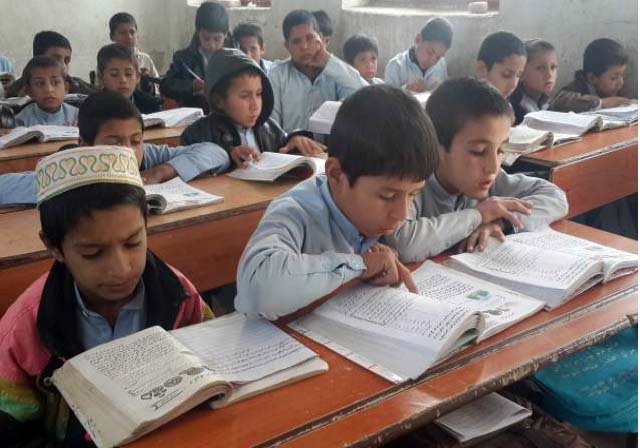Literacy is the ability to read, view, write, design, speak and listen in a way that allows communicating effectively. The importance of literacy lies not just in the ability to read and write, but rather in a person’s capacity to apply these skills to effectively connect, interpret and discern the intricacies of the world in which they live. According to UNESCO reports, over 84 percent of the world’s adults are now literate while Afghanistan is in the midst of the lowest literacy rate in the world. While Literacy has been recognized as essential traits to developing a strong sense of well-being and citizenship; the citizens who have developed strong reading skills can easily overcome challenges and have a healthier self-image. They can become lifelong learners and sought-after employees.
As aforementioned, Afghanistan has one of the lowest literacy rates in the world, estimated about 31% of the adult population (over 15 years of age); female literacy levels are on average 17%, with high variation, indicating a strong geographical and gender divide. The highest female literacy rate, for instance is 34.7%, found in the capital, Kabul, while rate as low as 1.6% is found in two southern provinces of the country. Male literacy rates average about 45%, again with high variation. The highest male literacy rates are in Kabul, at 68%, while the lowest is found in Helmand, at 41%.
This high variation between male and female literacy rate, is due to combination of factors, such as traditional norm of women not attending school and spending time managing the household, security problems in travelling to classes, and sometimes family not allowing women to attend classes. The disparity in urban and rural areas in adult education rate is due to several factors as well, including security problems, centralized system of education like: lack of schools universities in remote areas, long walking distance to schools, and low demand for literacy in particular for women literacy due to traditional barriers.
It should be clear that there is no real Islamic barriers regarding education but this is responsibility of religious scholars to fight against superstitious social customs. According to saying of Prophet Mohammad (PBUH), seeking knowledge is compulsory for all Muslims including men and women; also the Holy Quran says about knowledge: “Never night and day is same.” Night means a person who does not have an education, because night is dark and if we wake in the dark we will fall. But in daylight we will see and avoid mistakes. A person who does not have education is like a person who cannot see. Education is like glasses. If we do not have education, how can we know what is right and what is wrong? How can we know about our culture and religion? If we do not have education, we must rely on people from other countries to help us. In fact, Countries are like a family, and if we do not have education we are like a five-year old child. We need someone to help us. Maybe they will—but only for one day, two days, three days. Not forever.
The power of literacy can be stated at two levels: National and Individual. At the national level, a literate population is required to build a nation with strong social, economic and political foundations. Literacy is an important starting point that brings awareness in people to work towards a better living. It helps them to break free of shackles of ignorance, avoid getting manipulated, and being left out of the mainstream. At an individual level, the increased confidence of every newly literate person to achieve the impossible bears heartwarming testimony to the power of literacy. Researchers found that children who received more attention and nurturing at home tended to have higher IQs. Children who were spoken to more achieved higher IQ results at age three and performed better in school at ages nine and ten. And while the amount of talking parents did with their children made a difference, one researcher found that language delivered by television, audio book, Internet, or Smartphone did not produce the same results as personal interaction, no matter how educational the content.
When we invest in learning and literacy, we invest in human dignity, development and peace. Literacy is the key for acquiring knowledge, interpersonal skills, expertise and the ability to live together in community – all skills that are the foundations of modern society. Especially in our day, the internet enables endless educational possibilities, with constantly evolving information streams. By promoting literacy, we can help millions of people improve their work with new blessing of advanced technologies and write their own chapter of opportunity in their lives and our common future. Also strong literacy skills are a key tool used when children discern and interpret information, enabling them to utilize the internet to its full potential and making sure that the inevitable ‘digital footprint’ that children will leave, is one that is safe, appropriate, and reflective of their true self.
Home » Opinion » We are as strong as we are literate
We are as strong as we are literate
| Mohammad Zahir Akbari

